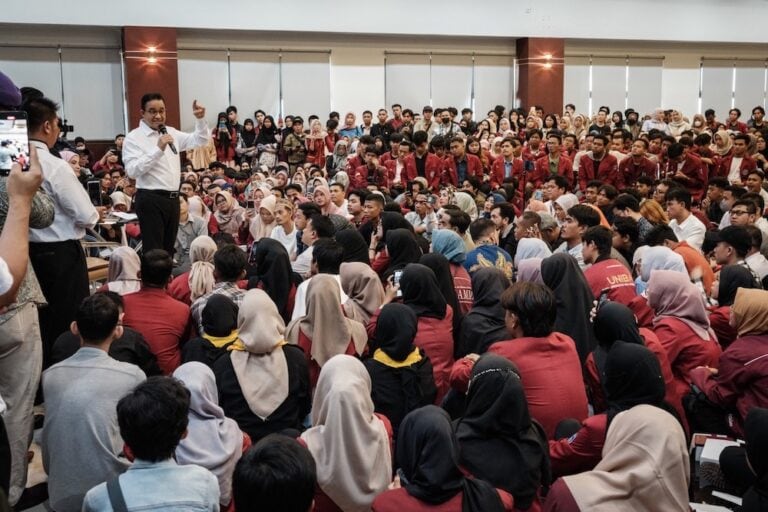"There is no treason in freedom of expression shared peacefully," said PFF, while calling on Indonesian authorities to "follow through on the constitutional mandate to open up public spaces for all people of West Papua to share ideas safely with each other and their leaders."
UPDATE: Lift restrictions on reporting, access to Papua (HRW, 13 June 2012)
(PFF/IFEX) – March 19, 2012, Rarotonga, COOK ISLANDS — Three years in jail for five West Papua activists is a further erosion of free speech and other human rights for the province, says the Pacific Freedom Forum.
“There is no treason in freedom of expression shared peacefully,” says PFF chair Titi Gabi, “in Indonesia, or anywhere else.”
The five men were sentenced by judges after being convicted for a public speech. Made last October, leaders at the Third Papua Peoples Congress ended the speech with a “Declaration of Independence” in front of a crowd of thousands. Shortly after the activist event, three people were killed when security forces opened fire on dispersing crowds. None of the military involved have been given jail terms.
“Under guarantees of free speech, strong opinion must be allowed without risking unconstitutional persecution by the state,” says Gabi, a Papua New Guinea journalist. “The statements which so riled the Indonesia government were made during a peaceful assembly. Matters reportedly turned ugly when the military fired guns into the crowd. An unarmed, peaceful gathering sharing political ideas can hardly be labelled as an act of terrorism.”
The Pacific Freedom Forum supports calls from Human Rights Watch and other groups for convictions to be dropped against the group now dubbed the “Jayapura Five”.
The convicted men are Selpius Bobii, a social media activist; August Sananay Kraar, public servant; Dominikus Sorabut; film maker, Edison Waromi, a former political prisoner, and Forkorus Yaboisembut, a Papua tribal leader elected president at the congress.
Co-chair of the Pacific Freedom Forum, Monica Miller, says that authorities in Indonesia must “follow through on the constitutional mandate to open up public spaces for all people of West Papua to share ideas safely with each other and their leaders.”
Miller says an impression of widespread injustice is growing worldwide, quoting a report from the US-based Freedom House on “contradictory” rulings within the Indonesian legal system.
“Until they feel heard by their rulers and the global community, the people of Papua will continue to pay the ultimate price for trying to speak freely on their lives,” says Miller.
Sentencing of the five in west Papua comes as Pacific journalists prepare to attend a regional media meet in Fiji.
Miller called on colleagues at the forthcoming Pacific Media Summit in Suva this month to also focus outside Fiji, on wider challenges facing freedoms of speech, including in west Papua.
“Journalists and the media must balance the news needs of their local markets with reporting urgent regional issues,” says Miller. The continued erosion of free speech in west Papua goes against Article 19 of the 1946 Universal Declaration of Human Rights, to which Indonesia is a signatory.


